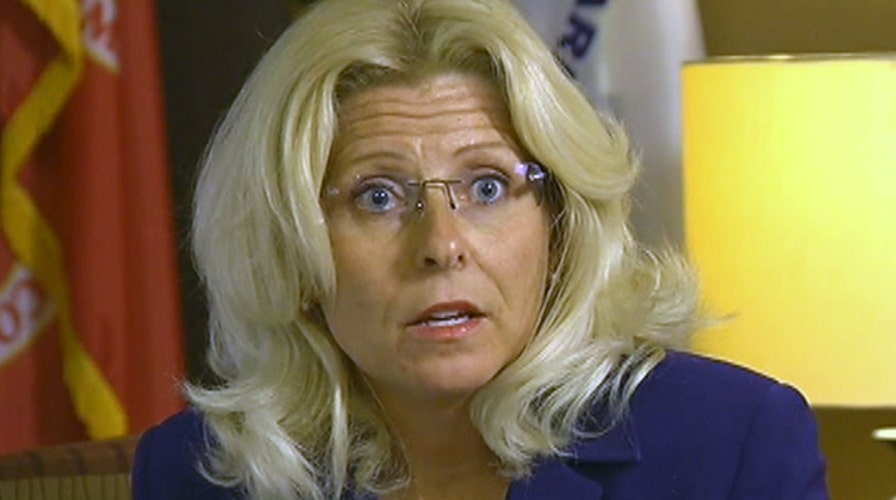VA boss accused of covering up veterans' deaths
Arizona official may have cooked books to hide scandal
Consider these two real tales of bureaucratic dysfunction at the U.S. Department of Veterans Affairs (VA):
August 2009: A government report reveals that officials at the VA medical center in Spokane, Wash., drastically underreported the number of veterans’ suicides in the Spokane area. While officials tabulated 9 such deaths, there were in fact at least 22.
April 2014: A former VA doctor charges that the department’s Phoenix Medical Center maintained two separate lists of veterans waiting for health care treatments. One list was shared with VA higher-ups to show the center was performing to standard; the other “secret” list told the true story of how veterans were forced to wait for months to receive care. At least 40 veterans on the secret list are reported to have died while waiting.
These incidents, though separated by several years and some 1,300 miles, share a common denominator: the Spokane and Phoenix VA Medical Centers were under the management of the same director, Sharon Helman.
[pullquote]
A longtime VA executive who took over in Phoenix in 2012, Helman now holds the inglorious distinction of being the public face of the department’s failure to hold executives accountable for performance failures.
As more facts come to light about the Phoenix scandal, it’s worth asking why neither she nor any other VA executives have been held to account for failing our veterans.
The situation in Arizona is not unique. Recent reports have detailed shoddy performance and service at VA facilities in Florida, Georgia, Pennsylvania, South Carolina…. the list goes on.
However, the Phoenix scandal is particularly noteworthy, in that it involves not only bureaucratic ineptitude and poor service, but actual malfeasance in the form of the secret waiting list. It took the combined efforts of whistleblower Dr. Sam Foote, along with the testimony of the families of Arizona veterans and diligent reporting by the Arizona Republic and other media, to bring the facts to light.
Those facts take on a more sinister cast with the revelation that Helman, the Phoenix VA director who sanctioned the secret list, was previously involved in another case of fudging records to minimize and hide problems in Spokane. In both cases, the manipulation of data likely cost lives.
It’s worth asking, how widespread is this practice? Are other VA facilities keeping two sets of books? How many VA facilities are manipulating and misrepresenting data to present a reassuring, but false, picture of progress? Knowing what we know now, can we trust any of the department’s self-reported statistics?
Veterans, advocacy organizations and sympathetic members of Congress have for many months urged reform of the dysfunctional VA. Until now, the VA and its defenders have ignored the calls for accountability, saying the department is on the right track and resisting calls for change. That position has always been shaky; now it’s downright untenable.
In the military, such a pattern of command failures would be met with decisive action—the underperforming leader would be replaced, period. But that strong performance standard doesn’t exist at the VA, and thus executives can be shifted from one post to the next, with little regard for performance or results.
Member of Congress are working to change that. In February Rep. Jeff Miller (R-Fla.) and Sen. Marco Rubio (R-Fla.) introduced the VA Management Accountability Act of 2014 in Congress to empower the VA secretary to fire managers who don’t perform.
The Miller-Rubio bill is gaining steam, and now boasts a bipartisan roster of more than 80 co-sponsors and support from numbers veterans organizations. The question is, will the Obama administration get behind this common sense reform legislation?
"Keeping faith with those who serve must always be a core American value and a cornerstone of American patriotism,” Barack Obama declared in a 2007 speech, a few months after announcing his historic run for the White House. “Because America's commitment to its servicemen and women begins at enlistment, and it must never end."
Judging by the president’s words, he has deep respect for the service and sacrifice of our nation’s veterans. But based on the performance of the VA under his administration, those words have not been matched with action.
With two and a half years left in his term, President Obama can still honor his pledge to veterans by demanding reform at the VA. And that should start with working with Congress to bring more accountability to the department’s leadership.
Mr. President, veterans and their families are watching and waiting for your leadership. Don’t let them down.

